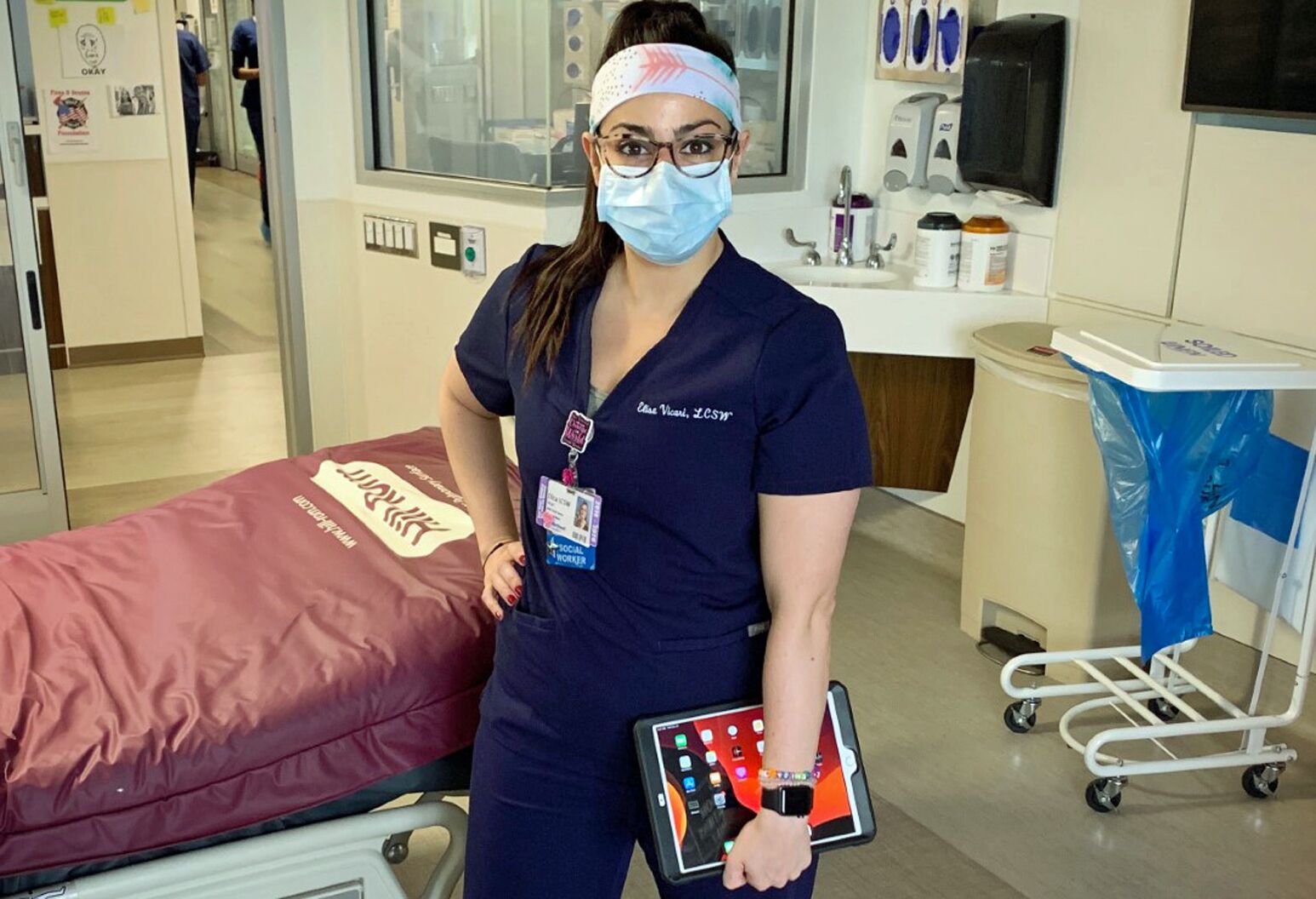As a social worker in the Intensive Care Unit at North Shore University Hospital, I’ve become immune to people passing away. Death is an unfortunate part of the job because we are treating the sickest patients.
COVID-19, though, was quite different for me and my colleagues.
During the patient surge in late March, we were caring for otherwise healthy 20- and 30-year-olds who were unaware of their surroundings and had no business being intubated. These are previously independent individuals who have been abruptly put on life support. This is the heartbreak the coronavirus leaves.
Adding to the complexities of this situation, visitation was restricted and patients in our unit were unable to speak to their families. This didn’t sit well, so I adapted my practice and refocused my efforts to find a solution. A quick Instagram post asking my friends and followers for one iPad donation turned into more than 20 and about $11,000 in community support — the true power of social media. Their assistance has allowed us to set up every unit within the hospital and other facilities in the area with iPads, which have been critical to helping us connect with families.
Not everyone is comfortable going into patient rooms. It’s a personal choice that must be made, one that I did not struggle with. A social worker’s role is to connect and assist, and the iPads have opened new roads to make important video calls where we could show not just a patient’s condition, but the entire room and care team.
In the I.C.U., patients are mostly intubated. Finding close connections has been challenging. Instead, we have grown closer to families, FaceTiming with them every other day for status updates, learning nicknames, favorite songs, and their pets who await them at home. They’ve sent pictures so we can build collages and fill their rooms with love. I feel like I’ve become a part of these families just by holding the screen for them.
In some end-of-life circumstances, visitors have been allowed to see their loved ones in their final moments. We’ve been there to help them with personal protective equipment (PPE), addressing their fears and coping with their situation. Some are able to hold their family member’s hand for the first time in weeks. We are also assisting with funeral arrangements, which are very different than usual with increased wait times. It’s overwhelming, physically taxing, and mentally exhausting. But it’s worth it. I couldn’t imagine being on the other side, watching the terrible images on the news of beds being piled up and not knowing if my loved one is OK. Showing families that our patients are in private rooms and we are helping them has given them tremendous comfort.
When patients fail, I feel it more than I used to because I’ve grown closer to them and their families. Our conversations aren’t just based on medical concerns, rather vulnerable situations that I’ve now been welcomed into.
It’s bittersweet. When things go well, they go well. But when they don’t, it’s devastating. At the heart of it, we deliver personalized, patient-centered and compassionate care, pandemic or no pandemic. COVID-19 may have tested our mettle and capabilities, but we have survived thanks in part to the camaraderie between us and families. We have all met this challenge with innovation, compassion and integrity. I really admire the people I work with who have stepped up. Teamwork is everything, knowing we will get through this together.
Elisa Vicari, L.C.S.W., is a social worker in the Intensive Care Unit at North Shore University Hospital.
Originally published on Northwell Health.
Click here for information about how Thrive Global is supporting our healthcare workers on the front lines of the coronavirus pandemic, and find out how you can support the cause by donating to #FirstRespondersFirst.
If you’re a first responder and want to share your story, email us at [email protected]. Please note, a Thrive editor may contact you to hear more about your story, and your submission may be edited for length or clarity before publication. By submitting your story, video, or pictures, you are agreeing for Thrive to publish your submission(s) if selected, and agreeing to the Thrive Global Privacy Policy. You can find more guidelines here.


